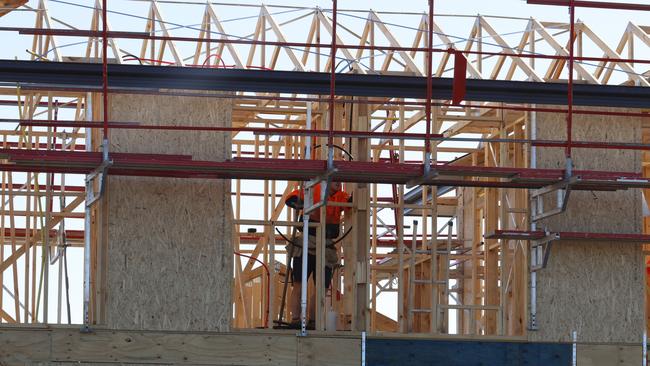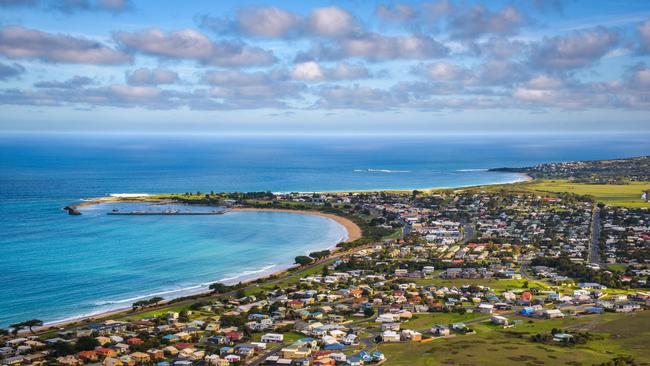Developers, community leaders raise alarm on housing supply
Submissions to a government inquiry into housing supply have revealed the surprising factors fuelling the crisis in the Geelong region.

News
Don't miss out on the headlines from News. Followed categories will be added to My News.
A state inquiry into the housing crisis has exposed polarising visions between local industry leaders, community groups and policy experts across the Geelong region.
Developers are calling for the state to slash red tape so housing developments can be delivered faster.
While, community groups along the Surf Coast have warned against a “build more approach” in favour of area specific policy reforms that make better use of existing homes.
Geelong developer Richard Bisinella argued in his submission that supply in the region is being choked by excessive red tape.
Mr Bisinella said areas earmarked for urban growth over a decade ago have sat idle, with key growth zones like Lovely Banks, Bell Post Hill and Batesford still waiting for precinct plan approval.

“While the focus has been on large scale land releases and related policies, the challenge of secondary consents is too easily overlooked,” Mr Bisinella wrote.
“While more regulations and taxes and layers of bureaucracy have been added, few – if any – have been removed,” he added.
Speaking to the Geelong Advertiser, Mr Bisinella said there should be state-mandated KPI’s for planning and secondary consent approvals to ensure developers can expand supply more efficiently.
“This would work best alongside fully transparent reporting on actuals versus KPIs, backed by full data reporting to an independent body to assist authorities in meeting those targets,” he added.
But community groups from Surf Coast towns like Lorne and Apolo Bay say blanket “build more” reforms would do little to improve housing availability, with new developments likely to be snapped up by investors and short stay accommodation operators, who already own over half of the existing stock in both towns.
Noting that 69% of the homes in Lorne aren’t permanently occupied, Friends of Lorne President Penny Hawe said in her submission that “Building new homes seems wasteful in such circumstances”.

“Making Lorne denser with infill housing might help downsizing couples and singles, but it won’t cater for the young families we desperately need to retain jobs and hence the viability of the school, hospital, and local business,” she added.
It’s a similar story in Apollo Bay, in his submission former Colac Otway Shire councillor Graham Costin said, “Simply increasing the supply of houses is unlikely to ease the housing crisis in these locations.”
Speaking to the Addy Mr Costin said, the housing crisis in his part of the region was unique because it’s inextricably linked with skill shortages that are threatening the survival of schools, hospitals and volunteer services like the CFA.
“When over 60% of the houses are holiday rentals it means that teachers, volunteers and other key workers can’t afford to live here,” Mr Costin said.

Mr Costin added it is time the state came up with “a more innovative approach” than just building more, with one suggestion being Community land trusts that acquire property in town that locals can buy into and build upon, but will only be able to sell in accordance with trust controls that prevent them from being used for short stay accommodation.
Originally published as Developers, community leaders raise alarm on housing supply




